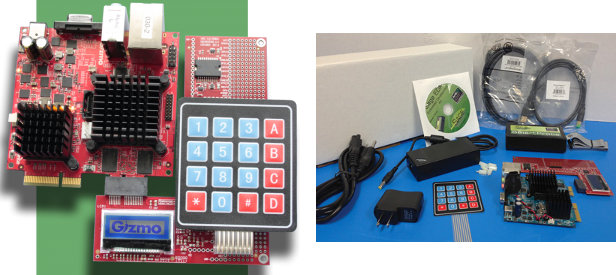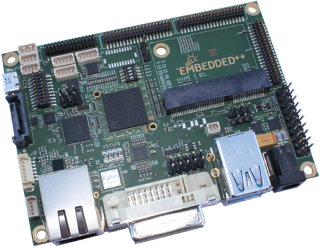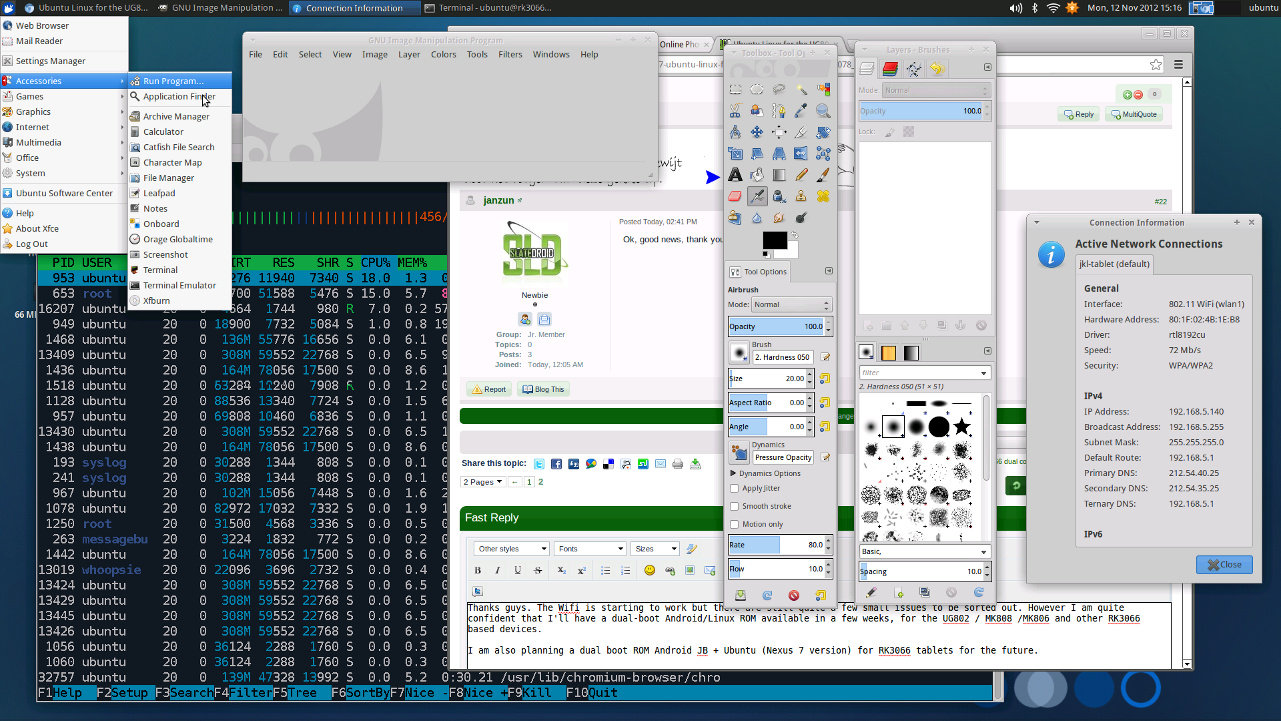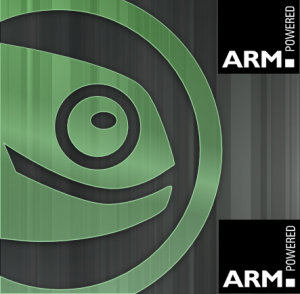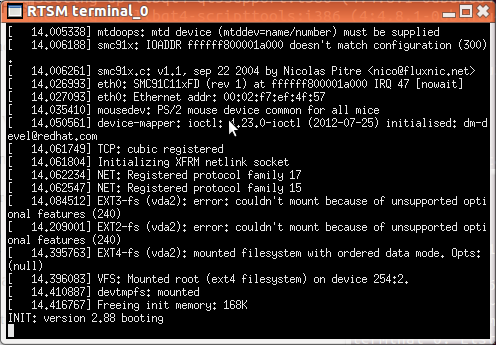I’ve just stumbled upon a low cost and open source embedded development kit featuring AMD G-Series G-T40E dual core APU that comes with the following: The Gizmo Board – A compact (10×10 cm) development board for powered by an AMD G-Series APU. The Explorer Board – An expansion I/O board providing an alpha-numeric keypad, a micro-display, and a breadboard area for prototyping and customization. Sage SmartProbe JTAG Development Tool – The kit includes the SmartProbe hardware and 20 hours of trial time use. Ethernet & USB Cables – The USB cable lets you connect the SmartProbe to your PC. The Ethernet cable is for networking connectivity, which can be used to access the SmartProbe as well. USB wall charger Power Supplyand Cable – A universal power supply for the Gizmo board, with a U.S.-standard cord. 6x standoffs with nuts Alpha-numeric keypad – To connect to the explorer board Installation DVD […]
Kontron ULP-COM-sAMX6i – Freescale i.MX6 Solo, Dual and Quad Computers on Module
Freescale i.MX6 series was first announced in January 2011, and there have been delays due to problem with the silicon, but now the i.MX6 processors are finally in mass production, and lots of different products are using this SoC. The latest product I found is ULP-COM-sAMX6i by Kontron which is a series of computers on module based on ULP-COM (Ultra Low Power) standard featuring Freescale i.MX6 solo, dual and quad processors. Those commercial and industrial grade modules target markets such as transportation, medical and military. Here are the technical specifications of the modules: CPU – Freescale i.MX 6 Single, Dual and Quad Core ARM Cortex-A9 @ 800 MHz (Industrial grade), 1 GHz and 1.2 GHz System Memory – Up to 2 GB DDR3 Storage – Optional onBoard NAND/eMMC up to 64GB Graphics / Video – Dual Display, HD 1080p Decode/Encode and 2D/3D acceleration Video Output Resolution Parallel LCD 18/24 bit […]
Learn How to Write a Driver for Linux 3.x With The Linux Driver Template
A Linux Driver Template (LDT) has been published to help new Linux kernel developers writing hardware device drivers. Constantine Shulyupin posted the Linux Driver Template (LDT) on the Linux mailing list in order to merge it into the mainline Linux kernel. The code can be used as as a starting point for new drivers, and shows how to use several Linux facilities such as module, platform driver, file operations (read/write, mmap, ioctl, blocking and nonblocking mode, polling), kfifo, completion, interrupt, tasklet, work, kthread, timer, simple misc device, multiple char devices, Device Model, configfs, UART, hardware loopback, software loopback and ftracer. This sample has been added to other device drivers samples in eLinux.org. And if you want to learn further there’s always the Linux driver bible: “Linux Device Drivers, Third Edition” which can be downloaded for free as PDF, although it’s for 2.6.10 kernel and many parts may not be up-to […]
Texas Instruments OMAP 5 Cortex A15 Systems-on-Module Galore
Today Texas Instruments published a press release to announce partners 6 company had worked to design and manufactures systems-on-module based on the dual core Cortex A15 OMAP 5 SoC and that those would be on display at Electronica Trade Faire this week (13-16 October) in Munich. Embedded++ EPP-Pico-OMAP5430 This solution is actually a Pico-ITX board based on OMAP5430 with 2 GB LP-DDR2, USB 3.0 SuperSpeed connectivity (1x USB 3.0, 3x USB 2.0), up to 16 GB eMMC storage, a SATA port, a 100Mb Ethernet port , UART, RS-323 & SPI ports, GPIOs, DVI and LVDS outputs, a serial camera input port, a micro SD card socket, Murata WiLink 8.0 connectivity solution (Wi-Fi, GNSS, Bluetooth®, Bluetooth v4.0 and FM technologies) and a built-in battery charger (1-cell Li-Ion). The company provides Linux and Android 4.1 BSP. Check the product page for a few more details. GreenBase GK-5432 GK-5432 is a computer on […]
Preliminary Version of Ubuntu Running on UG802 mini PC (Rockchip RK3066)
Last week, I wrote a post entitled “Rockchip RK3066/RK30xx Processors Documentation, Source Code and Tools“, where I explained that the kernel source code for RK3066 was released and somebody (AndrewDB) had started working on a port of Ubuntu for the platform. It appears he has been pretty busy, as there has been some progress in the meantime… AndrewDB managed to run Ubuntu on UG802 HDMI Stick. Wifi is starting to work, although there are still some minor issues to resolve. He plans to have a dual-boot Android/Linux ROM available in several weeks for RK3066 based devices such as the UG802 and MK808. Eventually, AndrewDB also intends to release a dual boot ROM Android Jelly Bean + Ubuntu for RK3066 tablets. That’s all the information I have for now. This is still work in progress (See TODO List) and no binary has been released yet. Via: SlateDroid Jean-Luc Aufranc (CNXSoft)Jean-Luc started […]
XBMC for Linux on AllWinner A10 Devices? It Works! (Sort of)
Following the lack of support by AllWinner for the video engine libraries (CedarX), I had more or less given up on hope XBMC for Linux would ever run properly on AllWinner A10/A13 hardware. But recently, I found out some progress had been made using existing libs, and saw the Pengpod Tablet video showing XBMC running in Linux fairly smoothly. So I decided to cross-compile XBMC by following the instructions available at http://linux-sunxi.org/XBMC and trying to run it in Linaro ALIP 12.04 rootfs in my Mele A1000. Finally, I managed to cross-compile XBMC, but the performance was very poor in the GUI (6 to 12 fps) and I was unable to play videos and my serial console was flooded with messages like:
|
1 |
[DISP] not supported image0 pixel sequence:216 in img_sw_para_to_reg |
[Update: I managed to have XBMC Linux running & playing videos on Mele A1000 by using j1nx image (rootfs + kernel). I would first exhibit the exact same […]
openSUSE 12.2 for ARM is Now Available for Beagleboard, Pandaboard, Efixa MX and More
The first stable release of openSUSE for ARM has just been announced. openSUSE 12.2 for ARM is officially available for the Beagleboard, Beagleboard xM, Pandaboard, Pandaboard ES, Versatile Express (QEMU) and the rootfs can be mounted with chroot, but “best effort’ ports have been made for Calxeda Highbank server, i.MX53 Loco development board, CuBox computer, Origen Board and Efika MX smart top. Work is also apparently being done on a Raspberry Pi port which should be available for the next release. openSUSE developers explains that almost all of openSUSE builds runs on these platforms (about 5000 packages). Visit “OpenSUSE on your ARM board” for download links and instructions for a specific ARM board. More details are available on the wiki page. openSUSE has limited resources for ARM development, so If you’d like to help with development (e.g. fixing builds), visit ARM distribution howto page to find out how to get […]
Getting Started with 64-bit ARM Development: Hello World and Linux on ARMv8 Fast Models
At the end of last year, ARM announced ARMv8, the first ARM 64-bit ARM archtecture, and last week at ARM Techcon 2012, ARM announced the first ARMv8 cores: Cortex A53 and A57. But since there’s no silicon at the moment, what if you wanted to develop code running on ARMv8 before the hardware is available? The answer is: Fast Models, a Virtual Platform (VP) to accelerate software development. This is especially important for ARMv8 since hardware is not expected to be available for another year. In this post, I’ll first show how to run “Hello World!” in ARMv8 fast models, then we’ll run ARM Linux 64-Bit (Aarch64) in the virtual platform. ARMv8 Foundation Model In order allow the developer’s community to program for ARMv8 (Cortex A53/A57 cores), ARM has made ARMv8 Foundation Model, a virtual platform, available free of charge. This v8 Foundation model provides a basic ARMv8 platform environment […]


